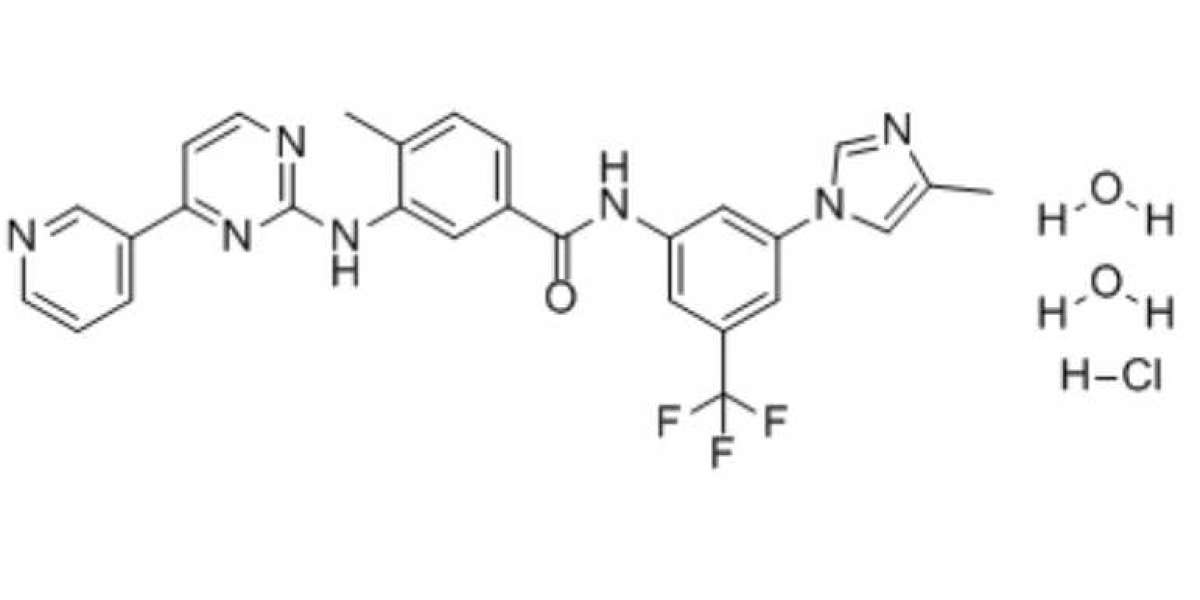Tyrosine kinase inhibitors (TKIs) have revolutionized the treatment of chronic myeloid leukemia (CML) but their use has been associated with various serious cardiopulmonary toxicities. This article from leading manufacturer Qingmupharm.com discusses TKI-associated toxicities and proposes guidance on their management with a focus on nilotinib.

The Introduction of TKIs in CML Treatment
TKIs have become the standard first-line treatment for CML since imatinib was approved in 2001. They work by inhibiting the pathogenic BCR-ABL1 tyrosine kinase protein produced by the Philadelphia chromosome translocation characteristic of CML. Several second-generation agents including nilotinib, dasatinib and bosutinib were later developed with improved efficacy against imatinib resistance. Ponatinib, a third-generation agent, can overcome resistance from the BCR-ABL1 T315I mutation that confers resistance to earlier TKIs.
While significantly improving outcomes for CML patients, prolonged TKI therapy exposure also carries risks of serious cardiopulmonary adverse events. Both on-target mechanisms through inhibition of pathogenic kinases as well as off-target effects modulating other kinases contribute to their toxicity profiles. Understanding these risks and implementing proper surveillance strategies is imperative for optimizing long-term management.
Nilotinib Hydrochloride API
Among the TKIs, nilotinib hydrochloride has emerged as a valuable treatment option, achieving high and durable molecular responses against both newly diagnosed and resistant/intolerant CML. Nilotinib hydrochloride is the active pharmaceutical ingredient contained within the commercial CML medication Tasigna®. It selectively inhibits BCR-ABL1 through competitive, ATP-binding blockade of its kinase domain.
Suppliers like Qingmupharm.com manufacture nilotinib hydrochloride API at commercial scale adhering to ICH/FDA cGMP standards. As an innovation-driven CDMO, they have optimized proprietary synthesis techniques to deliver 99% pure monohydrochloride monohydrate API meeting individual country’s pharmacopoeial standards. This ensures consistent, high-quality nilotinib hydrochloride supplies for clinical use as well as preclinical research on next-generation nilotinib formulations.
Managing TKI-Induced Cardiopulmonary Toxicities
Cardiovascular toxicities linked to TKI use includeQT prolongation/arrhythmias, heart failure/cardiomyopathy and vascular adverse events while pulmonary complications involve pleural effusions/pneumonitis and PAH. Baseline assessment of individual cardiovascular risks is prudent before TKI initiation given their multifactorial influences. Careful ECG and echocardiogram monitoring helps detect subclinical toxicity at an early treatable stage.
QT prolongation represents an acute concern managed through electrolyte correction, intermittent monitoring and considering concomitant medications. Heart failure typically presents sub-acutely, requiring reduced TKI dosing, diuretics or ACE inhibitors for mild forms and potentially alternate TKI selection for severe cases. Vascular events primarily manifest as peripheral arterial disease with nilotinib/ponatinib necessitating preventive lifestyle steps and revascularization for symptomatic cases.
Pleural effusions are a frequent pulmonary toxicity associated with dasatinib sometimes necessitating TKI switching, drainage or corticosteroids. PAH develops more rarely but demands prompt TKI cessation given its severity. Careful patient education and optimization of cardiovascular risk factors are integral to safely facilitate long-term TKI treatment maintaining deep remissions.
Emerging Risks with Nilotinib Use
Data demonstrate nilotinib's increasing cardiovascular toxicity risks emerging beyond initial trials. Post-marketing studies found higher incidences of peripheral arterial disease and myocardial infarction than seen with other TKIs. Large registry analyses showed its association with QT prolongation and PAH was also higher than other agents including dasatinib. The frequency of non-fatal vascular events and arterial occlusions also appeared to rise over years of nilotinib use.
Baseline risk factor assessment along with closer monitoring of ECG and vascular status is recommended particularly for nilotinib. Early detection may allow initiating preventive measures or dose adjustments before manifestation of life-threatening complications. Future work through clinical trials may further refine risk stratification and delineate optimal monitoring protocols tailored to individual TKIs.
The Role of Qingmupharm.com
As a leading Nilotinib manufacturer with over a decade of specialty pharmaceutical experience, Qingmupharm.com is uniquely positioned to partner in addressing emerging cardiopulmonary safety concerns. Their large-scale Nilotinib manufacturer coupled with stringent quality oversight ensures consistent, affordable API supply required for global research.
Through preclinical services including analytical method development and formulation studies, Qingmupharm.com expedites projects assessing novel nilotinib formulations, analogs or combination regimens capable of minimizing toxicity risks. Joint clinical programs can also fund evaluation of predictive biomarkers, optimized risk stratification tools and personalized therapeutic approaches for safer long-term CML management.







